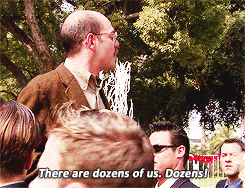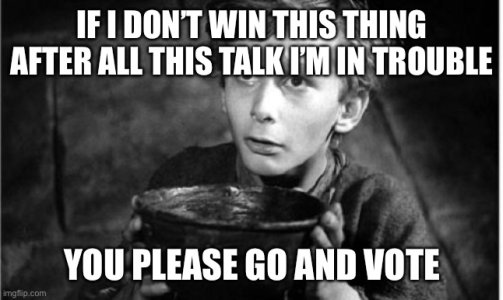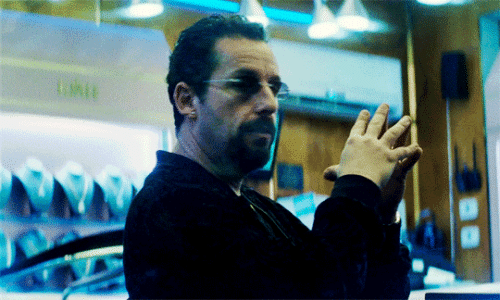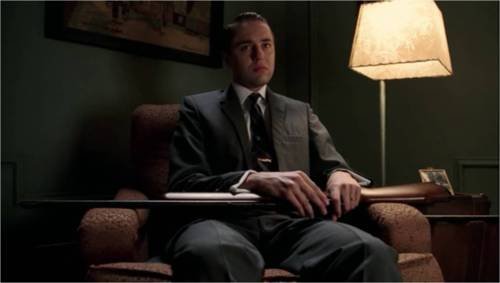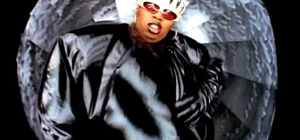I wish this kind of overhaul could take place in the US. Unfortunately there's too many people that see any type of reform as an attack on this country

I'm stating the obvious, but just look at how people wanting the police to be fair towards black people/minorities gets twisted to an attack on police in general, an attack on the US, an attack on the flag, etc.
I mean, isn't wanting this country's institutions to become better much more patriotic than just sitting around and accepting the @#$@ status quo? That type of blind patriotism is what the US seems to be against when it comes to countries like North Korea, but somehow it doesn't apply domestically.
Somehow wanting our future generations to not get shot for having melanin, not get shot by lunatic mass murderers, have access to good education, have access to affordable healthcare, etc. gets met with "If you don't like it, leave"
I'm jealous of examples like yours, and even more recently, I've been jealous of how South Koreans handled their own @#$@ president. The hundreds of thousands of people that protested and rose up against a corrupt government weren't marked as traitors or told to go to a different country if they didn't like it, they were hailed as heroes and real patriots for not stopping until the president was booted from office.
A stereotype that is often used to describe us is that we have no national pride/identity. For the most part, this stereotype is rooted in truth. As you may have heard, our reputation abroad has often included the words "failed state", especially in the recent decade. Perhaps more so than abroad, that general idea is a common view amongst our citizens as well. I don't really know any surrounding countries with a comparable sense of internal disappointment or even resentment. That being said, by many objective metrics (quality of life, life expectancy, crime, healthcare, education, ...) we are not a major outlier amongst our EU peers, and polling reveals that a good amount of the population is quite happy with their lives but that negative view of the country has continued to persist.
I am proud of my country and by all means I have it pretty great here especially considering my health condition(s) but pride and patriotism to me also means being aware of and acknowledging the country's flaws. While there are many positives, there are also some very glaring negatives.
Despite all those positive factors, there are also some very major downsides that I believe contribute greatly to this strong lack of pride and Belgian identity. The most obvious one is the language barrier.
There really isn't any significant kind of "Belgian" nationalism. What I mean by that is that there is very little nationalism relating to the full state of Belgium. Instead, our forms of nationalism if you can call it that is primarily a "**** the south/**** the north" thing. Flanders (the northern region) hates Wallonia (the southern region) and vice versa. Though this sentiment is particularly prominent here in Flanders. You will even come across secessionist views quite often, including in government. The obvious factor here is the language barrier, as well as a difference in wealth between the two regions. The language barrier has divided our country in 2 or 3 parts since its inception and nothing has really changed to decrease that division. Our country has 3 national languages, though the third is only a small region. Flanders speaks Dutch, Wallonia speaks French and the German region in parts of the south is pretty self-explanatory.
That alone causes division, but what makes it much worse is that the education standards are very different between the regions. In Flanders, we are mandated to learn at least 3 languages in school. Dutch of course, French and English. In many cases German as well. Throughout my education for example, I learned Dutch, French, English, German and 1 year of Latin.
So we are mandated to learn the language of the southern region, but not necessarily of the German region. And in Wallonia, our native language Dutch generally isn't mandated at all. That factor in particular, combined with Flanders being wealthier than Wallonia, results in a lot of resentment towards the other half of the country.
This is why you will very rarely come across Belgian flags around here. Literally the only time I see our flag outside of one of the major cities is when our national soccer team is playing an important match.

During our matches in the Worldcup, I expect to see tons of flags around my area. On our national holiday however, I expect to see none at all. That's the way it is and what people are used to. On top of that, our national anthem is practically non-existant. I don't know more than 2 or 3 lines from it and neither does anyone else I know including my parents. We were taught the anthem once in elementary, had to recite it on a single occasion and it has slipped from our collective memory since then.
I'd be lying if I said I don't feel some type of way about the south too. I do think it's a disgrace that all the regions can't come together and mandate learning eachother's languages. But nothing ever gets done about it. I've been to the federal parliament several times, and I find it just absolutely pathetic that so many of our politicians have to sit there with earpieces because they don't speak eachother's language. Seeing that in person, I can't imagine anyone looking at that and not feeling some type of way about it. Our prime minister is expected to speak both languages fluently and thankfully they have done so but that's about the only politician that is expected to and it's technically not a requirement.
On top of that, for a small country we have an extremely complicated governmental system. Our layers of government consist of the federal, regional, communal, provincial and local level. Now combine all of those with the reality of our massive language barrier. For as long as I can remember there has been very strongly negative views about our politics, and the idea that this overcomplicated system and sense of indifference has contributed greatly to political corruption has been reinforced numerous times over the years. If we did not have manatory voting, I would imagine we'd have one of the lowest turnouts in Europe. On the other hand mandatory voting also removes voter suppression from the equation entirely. Our elections are short and polling stations are plentiful to comply with mandatory voting.
One thing that particularly hurt our country's image was the world record amount of days we managed to achieve without a functioning government. It became such a running joke that people were celebrating
taking the record from Iraq by more than double their amount of days. This particular political and national crisis is generally seen as having started in 2007 and ending in 2011.
The crisis started after the 2007 elections, in which a Flemish alliance of 2 major parties tried to undertake significant state reform. Along with a string of scandals, the key element in this crisis was the reformation of several areas in the Brussels region. Due to strong communal divisions, this new alliance sought to partition these areas. Of course that resulted in a disaster in which north, Brussels and south argued ad infinitum about who would get which parts. This period also gave rise to prominent secession views amongst the Flemish population and government. It took 194 days after this election for the parties to come together and form a functioning government in 2008.
However, in 2008 the Fortis bank crisis also broke out, which once again destabilized the country and resulted in the resignation of prime minister Yves Leterme. Herman Van Romuy then led the government and kept it relatively stable for a while. But even in relative terms that was still very fragile and all those views of separatism and resentment didn't magically disappear. It was only a matter of time before the country would fracture again. Herman Van Rompuy left his office to become the president of the EU Council around the end of 2009. His leaving resulted in the return of Yves Leterme as prime minister, despite his resignation in 2008. You can probably guess where this is going.
In 2010, the government fell once again over the lack of progress in resolving the issue of the partition of those communities in the Brussels region. A new election was held in June of 2010, however it resulted in a pretty even split between 2 major parties on opposing ends of the language barrier. The NVA (New Flemish Alliance) won in a landslide in Flanders, while the PS (Socialist Party) won in Wallonia. This resulted in a split of 27 seats for NVA and 26 for the PS. The other seats were filled by a variety of other smaller parties. Aside from the language barrier, what separated these 2 parties most of all was the separatist ideology on the Flanders side and the pro-unity ideology on the Wallonian side. This is what resulted in
our world record of 541 days without a functioning federal government. The previous holder of this record was Iraq in 2010 with 249 days. We also continued to beat Lebanon's later record on our way to 541 days.
In short, we managed to double the record of days without a functioning government from a war-torn Iraq. As mentioned before, this running joke that started in 2007 got to the point of people anticipating and celebrating taking the record from Iraq. It took until December of 2011 for a functioning government at last and Elio Di Rupo was appointed as prime minister.
You really don't need to look any further than doubling the war-torn Iraq record to grasp the scale of this disaster that tarnished our image. Much less everything that went into that timeframe.
While political scandals of corruption still rise up quite frequently and it will take far more to undo some of the lasting damage from that crisis, I feel like we've been on a forward path since then in spite of that. There have been some pretty big rocks on the road though, this being a pretty recent example:
https://www.nytimes.com/2017/06/13/world/europe/brussels-mayor-yvan-mayeur-scandal.html?_r=0
It's a good read. I would also note that things like this are simply par for the course for many people.
Lastly, to go back to your response, in spite of all this division, the scandals, resentment, political indifference, ... as a country we have generally been willing to take big steps to drastically change elements of our country on some levels. Perhaps it's the indifference in which people don't care all that much about such kind of drastic changes or a lack of hyper-partisan rigid nationalist ideology in which only one party is to be supported at all times. Perhaps it could also be the high level of resentment towards our political system and thus more significant scrutinization of bad incidents. It's likely a combination of all of those. While key elements of our national politics always persist in one form or another on both sides of the language barrier, there is still a multitude of political parties and the people have shown to be willing to change across the spectrum, just within the confines of the language barrier and not across. With mandatory voting, the people have to vote either way whether they like it or not.
When you look at some of our most drastic progressive changes, there have actually been a pretty good number of them. Especially when you take into account all the flaws.
We were one of the first countries in the EU to legalize abortion and euthanasia.
It took well over a decade of abhorrently incompetent policing but we still managed to completely abolish all existing police organizations and reform them with new ones.
We even have laws that definitely infringe free speech involving racism to some extent. A former congressman was recently indicted for holocaust denial for example. I don't fully agree with the set of laws regarding those issues but it is what it is and those laws managed to pass. For a bit of clarification, while you can technically sue your neighbor for racist hate speech or actions, any judge is gonna throw it out immediately and these cases generally only apply to highly influential individuals such as politicians. It's very rare that it actually leads to a conviction or even a trial though. It's more of a symbolic reminder that these highly influential people shouldn't be peddling blatantly racist ideologies out in the open. It's ripe for abuse and should probably be dismantled at some point before that happens but in a way it also shows the extent of drastic changes our nation was willing to make.
There was also the drastic overhaul of our loose firearm regulations a couple weeks after after a 2006 mass shooting that shocked the country.
In more recent memory, there have been the significant institutional reforms that were mentioned in the part about the 2007-2011 crisis for example.
We also have strong labor unions that actually do hold significant power in our economy, for better or for worse.
Quickly summarized: I am proud to be Belgian and have it pretty good/great here but that pride must also come with full awareness and acknowledgement ouf the country's major flaws. In terms of social justice issues however, we've been pretty progressive in various areas. Our high standard of healthcare, education and the social safety net are excellent and we can at least be very proud of those elements.





 During our matches in the Worldcup, I expect to see tons of flags around my area. On our national holiday however, I expect to see none at all. That's the way it is and what people are used to. On top of that, our national anthem is practically non-existant. I don't know more than 2 or 3 lines from it and neither does anyone else I know including my parents. We were taught the anthem once in elementary, had to recite it on a single occasion and it has slipped from our collective memory since then.
During our matches in the Worldcup, I expect to see tons of flags around my area. On our national holiday however, I expect to see none at all. That's the way it is and what people are used to. On top of that, our national anthem is practically non-existant. I don't know more than 2 or 3 lines from it and neither does anyone else I know including my parents. We were taught the anthem once in elementary, had to recite it on a single occasion and it has slipped from our collective memory since then. 
















